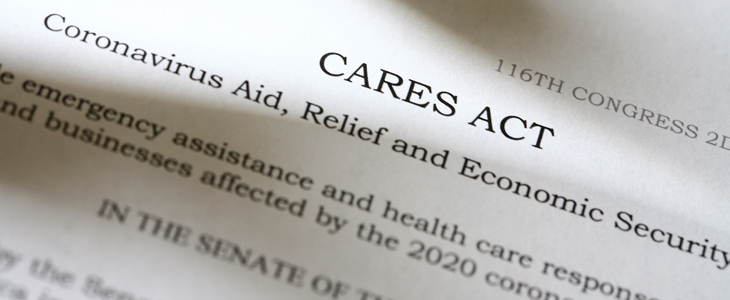
While much about the COVID-19 pandemic is still maddeningly unclear, one thing is certain: The Coronavirus Aid, Relief, and Economic Security (CARES) Act, signed into law on March 27, 2020, provided over $2 trillion to address some of COVID-19’s impact on public health and the economy. However, this massive emergency relief—which includes $500 billion for large companies and more than $300 billion for small companies—comes with the prospect of companies committing fraud and abuse.
Businesses able to receive CARES Act relief should be mindful of stringent government scrutiny into their use of those funds and their business dealings as a whole. To avoid becoming ensnared in fraud investigations, companies should learn from recent history—the government’s oversight and investigations following the 2008 Troubled Asset Relief Program (TARP).
With the potential for scrutiny, it is important to devise strategies to comply with government regulators’ expectations.
Precautions That Can Decrease the Risk of Liability
Companies may protect themselves from government scrutiny by, among other things, paying attention to several key points in this next phase of the COVID-19 bailout.
Know the History of Compliance
The need for current financial relief should be balanced against possible future risks. Businesses should know their history and the existence of any conduct that may create future liability issues.
Ensure the CARES Act Application is Accurate and Complete
Despite the urgency to apply for emergency relief, businesses should ensure they accurately represent their financial standing. Moreover, businesses should carefully comply with applicable law, which often engenders retaining appropriate counsel at all times and accounting support where needed.
Maintain Accurate and Complete Documentation
Companies should provide sufficient support for why they applied for CARES Act funding, the certifications they made as well as the use of funds. The certifications may be used in audits and investigations to ensure funds are used for their intended purpose. Other documents such as board or committee presentations, minutes and email correspondence may also bear on this issue. These may be required to be produced in an audit, investigation or other proceedings potentially years down the road.
Seek Appropriate Sign-Off From the Board and Senior Management
The senior officers, managers and other persons in control should be involved in preparing, carefully reviewing and evaluating the details of the application as well as the certifications made in applications. If relevant, all major decisions should then be presented to the appropriate body for proper oversight, active discussion and approval.
Task a Person or Group With Overseeing the CARES Act Application
Businesses should designate a point person regarding CARES Act funds. This person should collect information relating to the CARES Act certifications, adhere to oversight, maintain records use of the proceeds and otherwise document steps in the process.
Maintain Strict Oversight
Companies should ensure they use the bailout funds in compliance with the act and should also remain vigilant of their business practices as a whole.
Consult Professionals as Needed
Businesses should ensure that they have the necessary professional resources available to protect their interests. This includes staying up to date on changes to supplemental legislation, rules and guidance.
Take Audits/Investigations Seriously
It is also important to take any audit or investigation seriously. For example, TARP investigators pursued businesses that had received funds arising from false loan applications, although they had no direct involvement in their submission.
Conclusion
Honest, prudent use and administration of the bailout funds can be a lifeline to businesses that need help. However, these funds come with responsibility and scrutiny of how they are used. Thus, it is strongly recommended to ensure robust compliance with all CARES Act funding requirements.
Nothing herein is intended to be legal advice, and should not be relied upon for such purpose.










